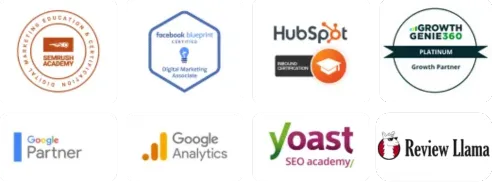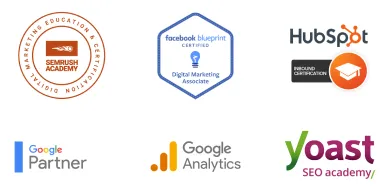TO LEARN IS TO GROW
Learning Center
We do our research and publish our results. Should probably call this the Growing Center.


Dealing With Zoom Fatigue As Per Experts
Zoom Fatigue is a real thing according to mental health experts. In the same manner that employees can suffer from workplace burnout, the new reality forced upon work-from-home folk causes even more stress and anxiety as we continue to social-distance and shelter-in-place.
Zoom is just one of the many video conferencing services out in the market.
For some reason, however, Zoom has become immensely popular and has somehow earned the position as the go-to brand for today’s work-from-home and social-distancing culture.
Without a doubt, video conferencing services (such as Zoom) are incredibly useful.
And working from home certainly does have its perks.
Thanks to Zoom, not only are we able to get some work done and stay employed, but more importantly, we’re also able to keep in touch with family, friends, and colleagues during these crazy times.
But don’t you sometimes feel just a little drained and weary of these constant remote meetings? If so, then you might be having a case of Zoom Fatigue.
Zoom Fatigue: What Is It All About?
Zoom Fatigue is the exhaustion you feel if you’ve been using video-calling interface services which can also include Skype, Google Hangouts, WebEx, FaceTime, and GoToMeetings, among others.
These days, more and more workers, entrepreneurs, and business-folk are working remotely. Having online meetings helps in getting things done. Now, while having regular Zoom meetings might initially seem that much big of a deal, real-life conditions now seem to suggest otherwise.
Sitting in front of a computer for eight hours a day (or more) isn’t exactly healthy to begin with. And then there’s the eye strain caused by staring at a brightly lit screen for hours at a time. Now add in the complexities of a “new normal” set of online interactions.
Virtual interactions, it would seem, take a toll on us, taxing our brain and compromises our well-being, forcing us to adapt to a new way of communicating, splitting our attention, and making us feel emotionally and psychologically spent after a while.
Among one of Zoom’s key advantages over other similar service providers is its ease of use. This means more meetings set– not a welcome development at all among workers who now have to attend to these meetings in addition to juggling work and at-home responsibilities.
What Is It About Zoom That Drains Us So?
Psychologist and mental health expert Dr. Sarb Johal points out four reasons why Zoom and other video calling services make us feel so tired:
1. You're Scheduling Way Too Many Zoom Calls
If you look at your typical day, you’ll have a video conference call with your entire team, then have several other breakout sessions with individual team members. And when your day ends, you’ll likely Zoom with your family and friends.
Because of the sheer convenience of Zoom, it’s a relatively simple matter to set up a meeting or two. But be careful as you might unknowingly schedule way too many virtual meetings just because it looks like you have more available time now.
2. You're More Self-Conscious During a Zoom Call
When you’re in a video conferencing call, not only do you see yourself (looking back at you, no less!), but you also have several other callers on the line.
“That’s probably making us more self-aware and perhaps more self-conscious too because you’re now on stage all the time,” points out Dr. Johal.
Do that enough times within the day, hour after hour, and it’s no wonder you feel spent every single time.
3. You Keep Second-Guessing Things
Whenever there’s a break in the conversation– silence in the dialogue, typically– it’s our tendency to wonder if there’s a technology fail of sorts or maybe it’s something you might have said.
Second-guessing yourself can be bad for your mental health. When we’re not sure about our course of action or our decisions, it can make us slow, inefficient, or downright indecisive.
4. You're Spending Too Much Time in Front Of a Screen
During pre-COVID-19 times, you’re more likely to get up and move around.
As mentioned earlier, habitually sitting in front of your computer all day can lead to a whole host of health concerns as it is: posture issues, body aches and pains, and problems with circulation, among others.
How Do I Know I Have Zoom Fatigue?
To be clear, Zoom Fatigue is not a specific medical diagnosis just yet (at least according to the World Health Organization). However, this can be seen as a type of workplace burnout.
When you notice that you (or your employees) feel somewhat disengaged during meetings, maybe it’s time to take a step back, assess the situation, and ask yourself some very serious questions:
Do you find it hard to get started with your workday?
Are you overly cynical at work?
Do you feel there’s a general sense of disillusionment or lack of satisfaction?
Do you feel exhausted or find that your energy gets depleted rather quickly?
Do you feel overly stressed or anxious?
Do you feel depressed?
If you’re experiencing any combination of these symptoms, then perhaps you are experiencing work burnout. If you feel like you need the services of a mental health professional, we urge you to go right ahead and see one.
Now, if you don’t particularly relish the idea of jumping into another online meeting anytime soon, then perhaps it might have been due to the fact that some of your recent Zoom meetings haven’t been as fruitful or fulfilling as you might have wanted.
Maybe you’ve felt like online meetings could have been handled via chat or email, or that certain team meetings might have been a total waste of time. Or perhaps your video conferences are getting in the way of real work.
True, these may be indicators of other issues within the workplace, but it’s also hard to discount that this is all part of the general upheaval the pandemic has brought upon us and that we’re all forced to deal with all these changes while working from home.
What Can We Do To Combat Zoom Fatigue?
Zoom and other video conferencing platforms are without a doubt, part of the new normal when it comes to conducting business meetings.
By being more aware of the dangers of Zoom Fatigue, we can better understand and moderate the use of the technology so we don’t have to experience burnout so often or so soon.
To avoid the undue stress of Zoom Fatigue, here are a number of tips to help maintain better online productivity and healthier work-life balance for all:
1. Manage Your Zoom Meetings Better
Here’s what you can do: actively scale down the number of Zoom video calls you have in a day or in the week. You can also set a daily or weekly cap if you wish or even block meetings together in an afternoon if that works for you.
Don’t forget to take breaks in between meetings you can move around a bit or do something different– these small things work wonders on your overall mental health.
2. Use Other Forms of Communication
Yes, Zoom meetings certainly have their uses. But if you can accomplish your team communication goals by means of email, phone calls, or apps like Slack, for example, by all means, do so.
Just because you have a web conferencing app available doesn’t necessarily mean you have to use it for all your work-from-home communications needs. A good old fashioned phone call might be good enough— you don’t have to worry about the visual interpretive work needed when trying to match the body language to what’s being said in a video call.
Whether you’re managing a team of your own or if you’re one of many remote workers just trying to get the job done, remember that you have many other tools for collaboration and connection available as well.
3. No Need To Require Video Interaction
Understandably, sometimes, an online video conference is the only way to properly convey ideas at a meeting. If this is the case, consider taking a more relaxed approach to Zoom meetings by allowing your employees or co-workers the option to not switch on their cameras.
Especially if you’re running the meeting or managing a team, set the tone yourself so that even if you’re on video, it’s alright for other participants to be on the conference without having to show their faces if they so choose.
4. Use a Background
Another aspect of Zoom video calls is that it seems like you’re somehow forced to open up your home to others.
Of course, you might be fine with that, but other colleagues might not be so amenable. Perhaps it may have to do with social comparison issues or perhaps other folks in your household just don’t feel comfortable having prying eyes within your private space.
In cases like these, go right ahead and use a background if it helps.
5. Understand That Life Can Get in the Way
Remember: we’re all just doing the best we can. Your colleagues are likely juggling work, chores at home, and even childcare or pet care.
So be a bit more understanding and welcoming if life gets in the way or pops into your work meeting. If you hear kids (or pets) in the background, don’t get embarrassed or annoyed. Instead, lean into it and use it as an opportunity to get to know each other better, and perhaps even get those kids (or pets) into the call as well.
6. Use Speaker View
Enabling Speaker View allows to relax a bit and not have to worry about episodes of self-consciousness of always monitoring yourself.
This way, you can turn down the feeling of being stared at by a roomful of strangers the entire time and have a more stress-free time running your online meeting.
7. Be Kind (To Yourself and Others)
Lastly (but certainly not the least), keep in mind that everything can feel pretty exhausting especially as we’re all working from home during the global pandemic.
So be kind to yourself and be kind to others. Chances are, you’re also using Zoom to socialize after work. It’s OK to forego a non-work-related video chat from time to time. (After all, just how much of one communication channel can you deal with in your life right now, anyway?)
Feel free to switch things up for a bit of variety and take breaks from video calls or your laptop screen as necessary.
A Final Word About Zoom Fatigue
While video conferencing is a helpful tool, it’s not always helpful in facilitating effective communication.
Being more mindful of your video app usage not only helps in avoiding Zoom Fatigue or work burnout, but it also helps you stay focused and productive even while you’re working from home.
Even if you feel like you’re experiencing a bit of Zoom fatigue, be kind to yourself, and be understanding when it comes to your co-workers who might feel a little too stressed as well. It’s OK to feel like you need to take a break or switch things up a little.
Built for Growth. Backed by 25 Years of Trust.
For over two decades, LOJO has been a trusted partner to hundreds of businesses just like yours. Whether working directly with owners, managers, teams, or boards of directors, our goal remains the same: to be a reliable and results-driven asset to your business.
Over the years, we’ve carefully built a team of experts—each selected for their unique skills, strengths, and personalities. Our clients choose LOJO because they know we genuinely care about their success.
And after 25 years of helping businesses grow, we’re more committed than ever.


Built for Growth. Backed by 25 Years of Trust.
For over two decades, LOJO has been a trusted partner to hundreds of businesses just like yours. Whether working directly with owners, managers, teams, or boards of directors, our goal remains the same: to be a reliable and results-driven asset to your business.
Over the years, we’ve carefully built a team of experts—each selected for their unique skills, strengths, and personalities. Our clients choose LOJO because they know we genuinely care about their success.
And after 25 years of helping businesses grow, we’re more committed than ever.




Matthew Rogers, President
iProspect Check
After spending several months reviewing multiple proposals from several different companies we engaged LOJO to develop a new website that represents our company effectively. We worked initially with Stephen Platte who helped create the scope of the project. Stephen was knowledgeable and always followed up with me on time and as promised.
He "closed the deal" for LOJO with his professionalism, service orientation and easy going approach. Once we signed the contract we were introduced to Jay Kelly who would be the creative lead for LOJO. This was the most challenging part of the project for my company, as there was no shortage of ideas from our side. Jay managed the project flawlessly, and once we had all agreed to the design, Jay introduced us to Eric.
Eric Lay is one of the founders of LOJO. Eric took the design we had developed and brought it to life. We delivered content as quickly as he requested it. Eric kept the project on task and we responded by exceeding every deadline for content. In turn, once provided, literally not a day went by that Eric didn't add the content and take the next step. In just a few weeks we launched our new website. Eric is a pleasure to work with.
His positive attitude and consultative approach really enhanced the experience and made a big difference for us in the outcome of our project. We would welcome you to visit our website to take a look at the quality work of LOJO. We are very pleased with LOJO and look forward to working with them in the future as we pursue an aggressive SEO strategy."
After spending several months reviewing multiple proposals from several different companies we engaged LOJO to develop a new website that represents our company effectively. We worked initially with Stephen Platte who helped create the scope of the project. Stephen was knowledgeable and always followed up with me on time and as promised.
He "closed the deal" for LOJO with his professionalism, service orientation and easy going approach. Once we signed the contract we were introduced to Jay Kelly who would be the creative lead for LOJO. This was the most challenging part of the project for my company, as there was no shortage of ideas from our side. Jay managed the project flawlessly, and once we had all agreed to the design, Jay introduced us to Eric.
Eric Lay is one of the founders of LOJO. Eric took the design we had developed and brought it to life. We delivered content as quickly as he requested it. Eric kept the project on task and we responded by exceeding every deadline for content. In turn, once provided, literally not a day went by that Eric didn't add the content and take the next step. In just a few weeks we launched our new website. Eric is a pleasure to work with.
His positive attitude and consultative approach really enhanced the experience and made a big difference for us in the outcome of our project. We would welcome you to visit our website to take a look at the quality work of LOJO. We are very pleased with LOJO and look forward to working with them in the future as we pursue an aggressive SEO strategy."

Matthew Rogers, President
iProspect Check
The team at LOJO were wonderful to work with. They are well organized and very patient as we worked through our marketing strategy and developed a well thought out and clear action plan at a reasonable price. We will definitely be back for our future campaign needs."

Jon Crosby, Founder
Dazil

